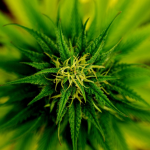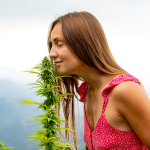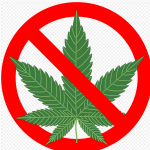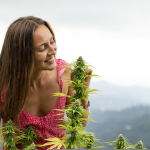The FDA has proposed changing the classification of marijuana from a Schedule I to a Schedule III drug. What impacts could this regulatory status change have on public health and drug regulation around the U.S.? Let's listen in.
marijuana
Roadside drug tests are unreliable, so why are they so widely used in the U.S.? Meanwhile, researchers who make "health disparities" the focus of their work sometimes misrepresent their results. Here's a textbook example from a study that used pulse oximetry to measure disparities in COVID-19 treatment.
“It never made sense for the DEA to list marijuana as a Schedule I drug. Making it a Schedule III controlled substance will make researching the drug’s medicinal uses easier. But it still makes federal criminals of the millions of adults who have been using marijuana recreationally for millennia and makes as much sense as it does to require people to get a prescription to ingest beer, wine, or whiskey.”
A recent study linking marijuana use to schizophrenia attracted widespread attention. Now that the excitement has died down, let's take a closer look at the science. How does Pfizer's weight-loss pill compare to Ozempic, the obesity treatment beloved by celebrities the world over?
Now that the political drama around gas stoves has waned, it's time to discuss the science. Here's what all the talking heads got wrong. Does secondhand weed smoke cause asthma? Maybe, though the most recent study cited as evidence isn't all that rigorous.
A recent study found that marijuana smoke may cause emphysema. The problem? The study was complete garbage. Celebrities and social-media "influencers" are hyping the weight-loss benefits of repurposed diabetes drugs. Should these medicines really be used to slim down? It's complicated.
Is marijuana really the low-risk drug that many Americans believe it is? Emergency room physician Dr. Roneet Lev says the popular conception of cannabis—as an all-natural treatment for pain, anxiety, seizures, and so many other ailments—is far too simplistic. She joins us on episode 25 of the Science Dispatch podcast.
"Climate-anxious" college students are pushing to have low-risk pesticides banned from their campuses. Meanwhile, states that have legalized recreational marijuana use are concerned that their new policy may cause more car accidents. We examine the science behind both stories on episode 14 of the Science Dispatch podcast.
Federal regulators and anti-tobacco campaigners are on the warpath against flavored vaping products. Though alcohol and marijuana use are more common (and more harmful) teenage vices, there seems to be little interest in restricting access to these products.
Most users perceive marijuana as a healthy, natural plant. It's touted as a cure or treatment for pain, anxiety, seizures, and other various ailments. Yet, much of this is false. Dr. Roneet Lev, a board-certified emergency medicine physician and addiction specialist, tells us about what the pot industry prefers to keep to itself.
Marijuana is being decriminalized across the US. Most are celebrating, but there is a real (and sometimes serious) public health threat that tags along. Most of you will be unaware of what you're about to read. Dr. Roneet Lev, the former head of the Scripps Mercy Hospital emergency department and also an addiction specialist shares some eye-opening information in the following interview.
Does marijuana use affect mental health? Cato Institute's Dr. Jeffrey Singer and colleagues address just this in a new pre-print of a paper that is undergoing peer review. The preprint can be read on the medRxiv site.











